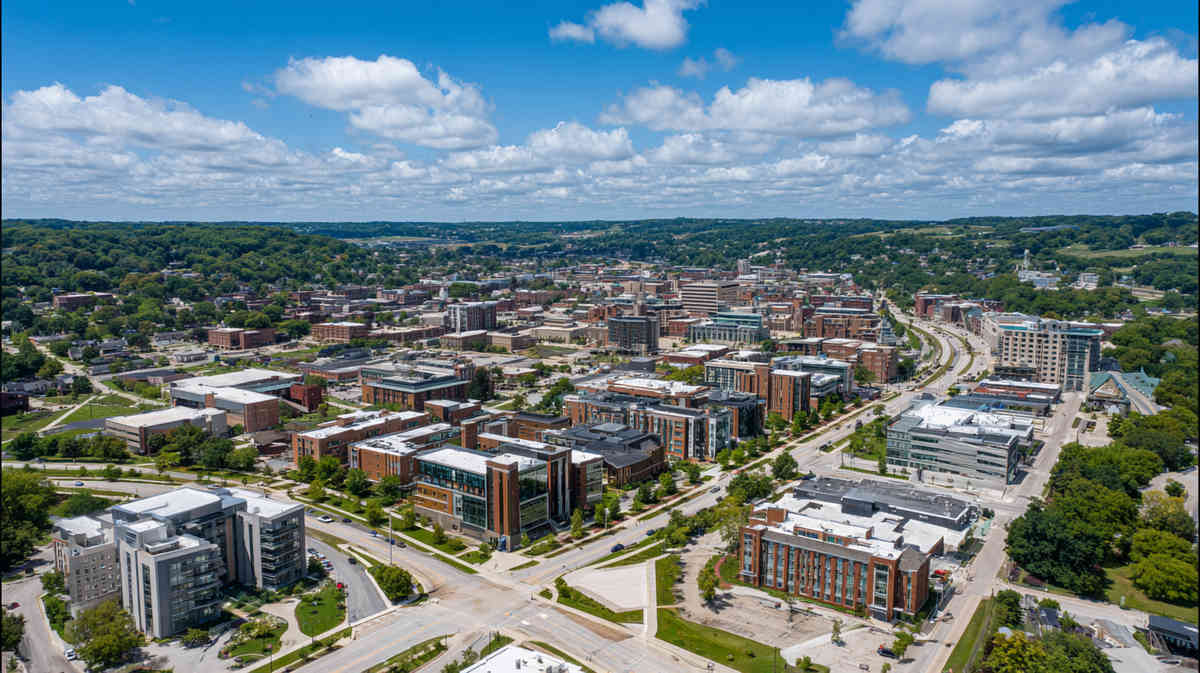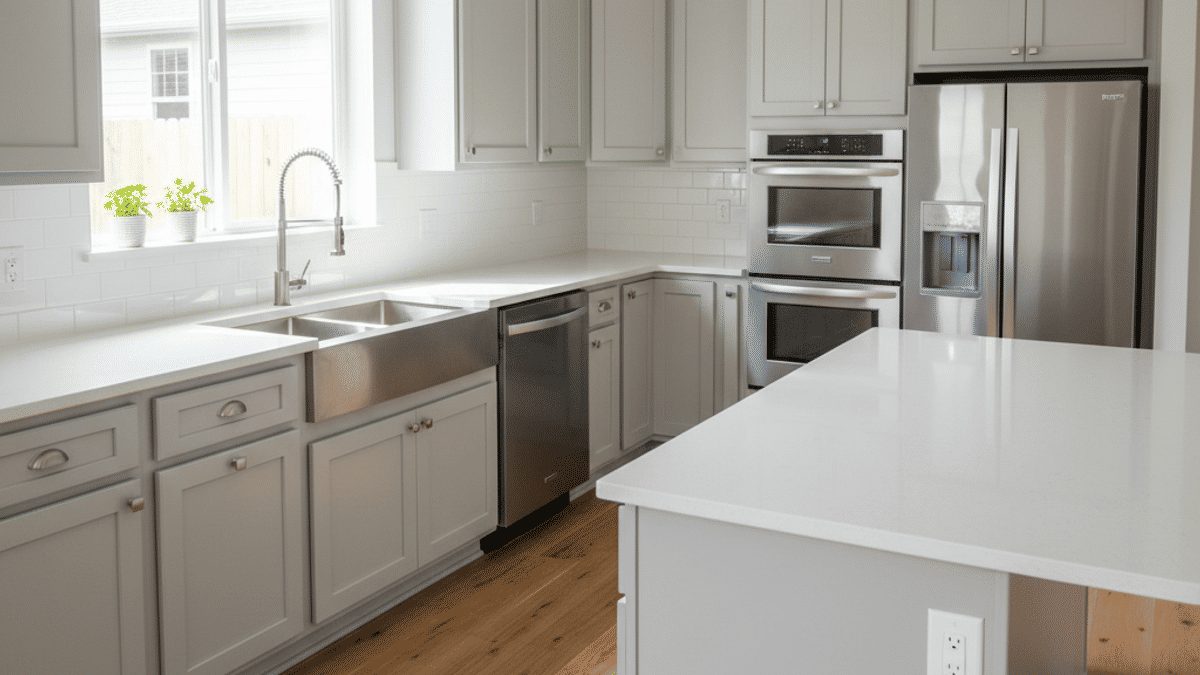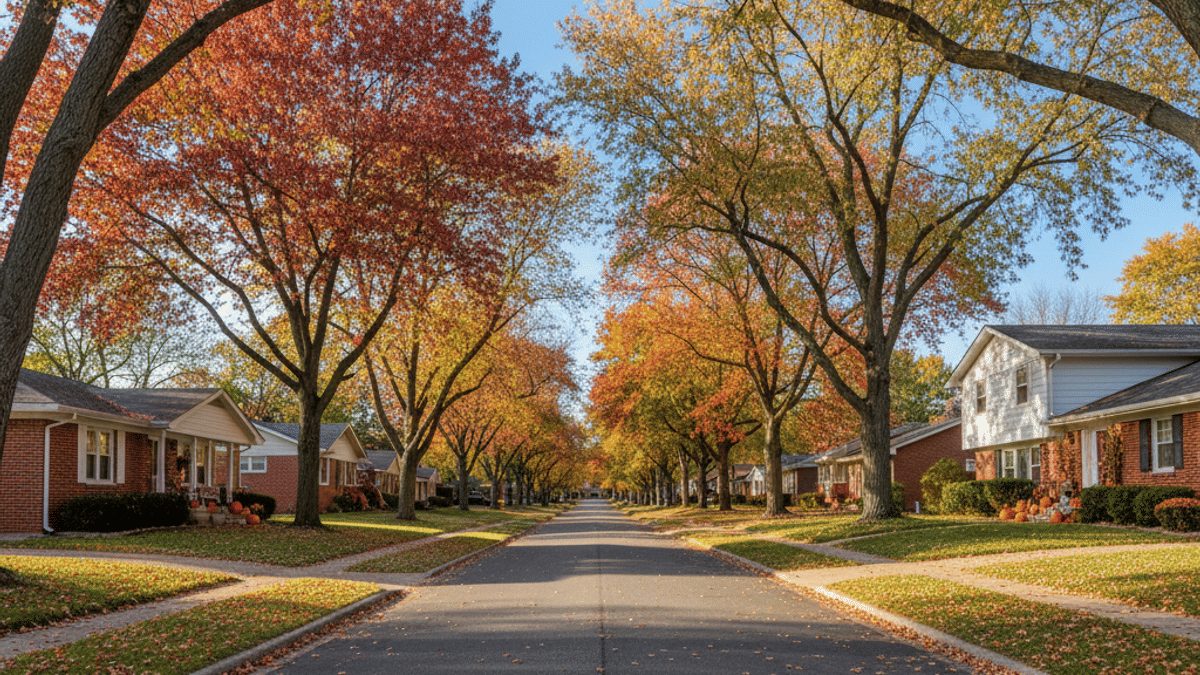You have probably read the same five tips on every real-estate blog. Budget. Talk to a lender. Save more money. Helpful? Sure. Game-changing? Not even close.
Let us turn the volume up. You are looking at Columbia, Missouri, a mid-sized college town that somehow behaves like a boom-and-bust tech hub and a laid-back prairie community at the exact same time. Prices keep inching up, interest rates bounce around like ping-pong balls, and the inventory feels tight even on a slow week. You do not need vanilla advice right now. You need the buried leads, the stats people skip, and the playbook that actually works in 2025.
So…should you even buy in 2025?
Quick pulse-check first. Median sale price in Boone County sat at roughly $290,000 at the tail end of 2024. That is up about 6 percent year-over-year, yet price growth has cooled from the double-digit surges we lived through earlier in the decade. Days on market averaged 24 in December, double the lightning pace of 2022. Translation: sellers are still confident, but the frenzy is gone. A balanced market may finally peek through, and first-timers can breathe for a second.
Interest rates? Mortgage News Daily pegged the 30-year fixed at 6.4 percent in January. Several analysts at Freddie Mac think we drop into the high-5 range by summer, though no one is tattooing that prediction on an arm. Every one-percentage-point drop in rate boosts your purchasing power by about 9 percent. Keep that in the back pocket because timing matters.
Biggest wildcard for Columbia in 2025: two major infrastructure projects, including the I-70 Rocheport Bridge upgrade and the electrification expansion near the emerging Innovation Hub district. Both bring new jobs. Jobs create buyers. Buyers create pressure. In other words, the lull could be short.
Still want in? Good. Let us load up on tools.
Free money that does not scream “free money”
Programs exist, but they rarely sit on page one of Google. That is by design. The less noise, the more budget left in the pot for folks who actually dig. You are digging, so here are the headlines.
Columbia Homeownership Assistance Program (often just called CHAP)
• Up to $10,000 toward down payment and closing costs.
• Zero interest. Forgiven after ten years of owner-occupancy.
• Household income cannot exceed roughly 80 percent of Area Median Income. For a three-person household that was about $66,750 last time the city updated the chart. Check the city’s Housing Programs Division for the fresh numbers.
• Max purchase price floats each fiscal year. It has hovered in the mid-$240s recently.
Hidden benefit: CHAP funds count as secondary financing, so you can still grab an FHA loan with 3.5 percent down, then stack CHAP on top. Layering help like that shrinks your out-of-pocket cash to coffee-money levels.
Missouri Housing Development Commission First Place Loan
• Standard 30-year fixed, but the interest rate usually lands about a quarter point below the market.
• Pair it with a Cash Assistance Second Mortgage for up to 4 percent of the loan amount. Repayable over ten years at the same fixed rate. Think of it as faucet-on-demand down-payment cash, repaid slowly.
MHDC Mortgage Credit Certificate
• Annual federal tax credit worth up to $2,000 for the life of the loan.
• Works like a coupon code for your IRS bill every April. Keeps giving even if you refinance later.
USDA Rural Development 502 Guaranteed Loan
• Zero down payment.
• Columbia proper is too dense to qualify, yet the fringes north of Route 124 frequently sneak in. If a backyard chicken coop sounds fun, the perimeter might be your ticket.
Not-so-local but still relevant
• Fannie Mae HomeReady and Freddie Mac Home Possible drop minimum down payment to 3 percent.
• FHA 203(b) lets you get in with 580 credit and 3.5 percent down. Add the 203(k) renovation twist if you want to roll repairs into the loan.
Important side note: most of these programs can be combined, but lenders sometimes forget that. Talk to a loan officer who has closed at least three layered-financing deals in the past year. Ask for proof. If they fumble the question, shop again.
Money moves nobody taught in high school
Down payment math is the easy part. The sneaky costs derail budgets. Let us fire through the usual culprits, then a few that never make brochures.
• Prepaid items.
First-year homeowners insurance plus prorated property taxes get collected at closing. In Boone County that combo averages $3,000 on a $300k house.
• Maintenance reserve.
The rule of thumb is one percent of the purchase price per year. On that same $300k place you might spend $3,000. Furnace filters, minor roof patches, clogged gutters. Nothing exotic.
• Utilities deposit.
Columbia Water & Light often asks for $150 if you do not have prior history with them. Small, yet buyers forget and scramble on moving day.
Now the lesser-known tricks:
Credit optimization sprints
Pull your own FICO 10T score 60 days out. Dispute a stale medical collection, pay it, then request rapid-rescore through the lender. I watched a buyer jump 47 points in ten calendar days last April. That single jump shaved 0.375 off her rate, worth $24,000 in interest over thirty years.
Tactical gift funds
Conventional loans let you receive an unlimited gift for down payment from a relative. Most folks stop there. Level-up move: ask for a gift of equity if the relative is also the seller. You skip cash wiring entirely and lower the loan-to-value ratio in one motion. Underwriters approve it daily.
Side hustle on-paper income
Lenders count any income that is seasoned twenty-four months. If you walk dogs or design logos, funnel that money through a dedicated account starting now. The 2025 closing table version of you will thank the 2023 version for the foresight.
Columbia versus Tennessee: a quick peek across the river
Someone inevitably compares Columbia to Nashville or Knoxville because they share the I-40 corridor vibe, university energy, and growing tech scene. Let us clear it up.
Statistic ‑- Middle Tennessee 2024 ‑- Mid-Missouri 2024
Median price ‑- $420k ‑- $290k
Year-over-year price growth ‑- 4.1 percent ‑- 6.0 percent
Average student-loan debt of first-time buyers ‑- $38k ‑- $31k
Typical concession from seller ‑- 1.8 percent of purchase price ‑- 2.4 percent
Two takeaways. One, Columbia remains less pricey even after a strong growth clip. Two, sellers here are coughing up more concessions than their Tennessee counterparts. That gap may narrow as Tennessee inventory loosens, yet for now Columbia hands you a slightly better negotiation seat. Milk it.
2025 playbook: winning offers without overpaying
Leverage remote work clauses
Roughly 36 percent of Columbia-area buyers now work hybrid or fully remote according to a December survey by CPAC, the CoMo Professionals Advisory Council. Houses within one mile of the downtown fiber ring command a 4-percent premium. Flip the script. Look farther north or south where 1-gig service still exists but inventory lingers. You score the broadband perks minus the bidding war.
Watch the I-70 exit numbers
Exit 133 Interchange upgrade wraps up this fall. Listing data from similar highway projects in Missouri shows a 7-to-12-percent pop within twelve months of completion. If your budget fits the West Ash or Twin Lakes corridors, timing the buy before ribbon-cutting can build equity on autopilot.
Ask for a permanent rate buy-down
Sellers hear “rate buy-down” and think temporary 2-1 plans. Go permanent instead. One point paid by the owner chops about .25 off the full thirty-year term. In 2024 one in five deals inside Columbia city limits included some kind of seller-paid point according to MLS records. Negotiation ammo right there.
Inspection judo
Never waive the inspection. Instead, keep the contingency but shorten the window from ten days to five. Add language that you will only request repairs exceeding two percent of purchase price. Looks friendly to the seller yet keeps big-ticket issues on the table.
Rookie mistakes that torch wallets
• Falling in love with staging.
Those faux-leather barstools and Edison bulbs head to the moving truck, not your closing documents. Judge the bones and the roof age, not the velvet sofa.
• Forgetting about resale corridors.
Columbia’s rental demand around the university creates a steady resale pipeline. Purchase south of Stadium Boulevard and north of Nifong and watch liquidity spike. Wander too far east past Lake of the Woods and days on market jump 40 percent. That is fine if you plan to stay ten years. Nail down your exit horizon first.
• Draining emergency funds.
Underwriters verify assets right before closing. If you empty the cushion for a higher down payment, you might squeak past underwriting but end up on the wrong side of a busted water heater in February. Stick to three months of expenses post-closing. Non-negotiable.
• Ignoring property-tax reassessment cycles.
Boone County reassesses in odd-numbered years. Buy in mid-2025 and the next bump may happen almost immediately. Escrow shortages equal surprise payment hikes. Factor it in.
Real talk on credit in 2025
Credit reporting changed under the National Consumer Assistance Plan. Medical collections under $500 drop off. Paid collections vanish after the final zero hits the balance. What this means in practice:
1. Pull your report four months before loan application.
2. If you spot medical items under $500, dispute them online. Bureaus remove within 10 days because the law says so.
3. Drop credit utilization below 29 percent on each revolving line, not just the aggregate. Algorithms punish individual cards over 50 percent, even if your total usage looks okay.
Hit those three marks and watch your middle score swell faster than a graduate-level finance lecture puts people to sleep.
The 90-day sprint to keys
Day 1-7 Choose a lender. Submit the full doc package.
Day 8-14 Obtain pre-approval. Not pre-qualification. Full underwriting review.
Day 15-45 Home search. Lean on weekdays. Competition sleeps then.
Day 46-48 Offer and negotiation.
Day 49-54 Inspection plus repair addendum.
Day 55-60 Appraisal ordered.
Day 61-75 Title work, insurance, rate-lock confirmation.
Day 76-83 Final underwriting conditions.
Day 84-88 Clear to close.
Day 89-90 Sign. Collect keys. Post a celebratory selfie near the SOLD sign if that is your thing.
Yes, sometimes the timeline stretches. Job transfers, probate hiccups, low appraisals. Still, a 90-day arc keeps everyone motivated.
Stats nobody bothered to mention
• Average age of the first-time buyer jumped to 36 in 2024 according to the National Association of Realtors. That is four years older than 2014. Student-loan pause ended, life kept moving, and buyers waited. Do not sweat it if you feel “late.” Most of America is late with you.
• Twenty-six percent of all homes sold nationally last year went to first-time buyers. In Columbia the slice ran 31 percent. University churn plus emerging-industry hires create an unusually young pipeline. More competition on starter homes but also a lively resale scene when you upgrade later.
• Forty-seven percent of first-timers who used assistance programs in Missouri layered at least two programs. Only eleven percent stacked three. Translation: the third layer is basically wide open. If your lender looks confused when you ask for that third option, show them this paragraph.
Ready to plant your flag?
Owning a home in Columbia is not just about walls and a roof. It is about locking in a payment before rents jump again, hosting barbecues under a Midwest sunset, or maybe just having a basement large enough for that vintage pinball machine collection you pretend you will restore one day. The path is crowded with acronyms and fine print, yet the finish line feels astonishingly simple once the puzzle snaps together.
Call a lender. Check the city’s Housing Programs page before breakfast tomorrow. Tour one house this week even if you are months away from an offer. Every action step crushes anxiety and builds momentum.
And when the keys hit your palm? You will know every page of that closing packet, every advantage you squeezed, and every dollar you refused to waste. That is how first-time buyers in Columbia win in 2025. Now get moving.







